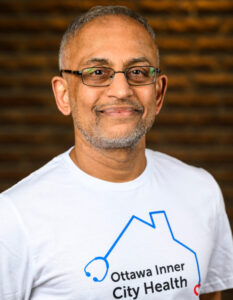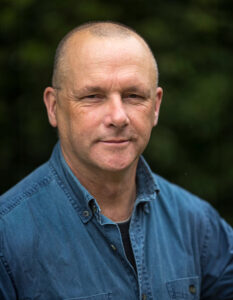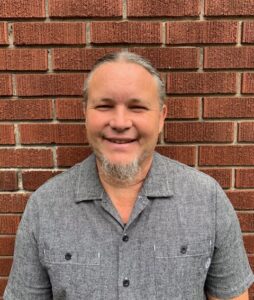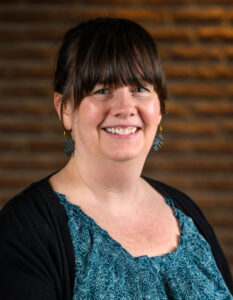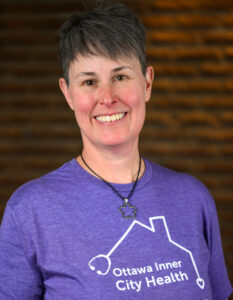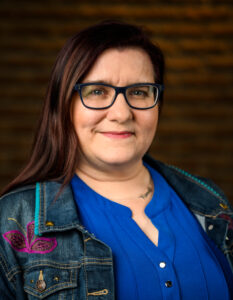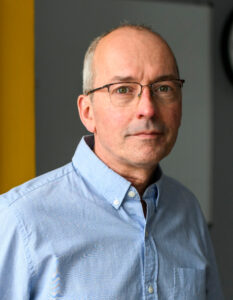What is harm reduction?
Harm Reduction is an evidence-based, client-centred approach that seeks to reduce the health and social harms associated with substance use.
Harm reduction can refer to policies, programs and practices that aim to minimize the negative health, social and legal impacts associated with substance use, drug policies and drug laws. It challenges traditional notions and beliefs of abstinence-based beliefs and this idea that everyone needs to be abstinent to lead a fulfilling life.
Harm reduction focuses on positive changes and on working with our clients without judgment, discrimination or requiring that people stop using substances as a condition of receiving support.

Substance use exists along a continuum where more problematic use requires greater resources for recovery. Individuals naturally shift along this continuum based on life circumstances. Those seeking help often find themselves further to the right, particularly those facing marginalization and trauma, where addressing social structures is crucial to effective treatment.
While abstinence is a common goal, the aim of treatment is to help individuals move left on the continuum as far as they wish and resources allow. Recovery is a long journey, often involving relapse.
Even brief abstinence reduces opioid tolerance, making harm reduction strategies essential. Effective strategies to solve the housing crisis and toxic drug supply must integrate harm reduction principles at its core.
If you want to read more, visit Canadian Drug Policy Coalition, Harm Reduction International or the National Harm Reduction Coalition.
Why is there so much social disorder in my neighbourhood?
There is no question that the amount of social disorder in downtown neighbourhoods has increased significantly over the past few years. The system of care for the unhoused, precariously housed, and people who use drugs, has been on the brink of collapse since the pandemic, which has only been exacerbated by the affordable housing crisis. Services are overwhelmed with demand and staff shortages are commonplace. This is all happening at a time when client needs are also at unprecedented levels due to the toxic drug crisis and the ongoing impacts of the pandemic on the mental health of our community.
In addition to mitigating some of the impact of social disorder through access to our various shelter and supportive housing based programs, OICH is working with our clients, our partners and our neighbours to restore balance to the neighborhoods in which we operate.
While we cannot control the social structures that have led us to social disorder challenges we see today, we are working with the City, our partners, police, neighbours and our clients toward solutions that will restore the balance in our communities that we all want.
Treating people who use drugs from the unregulated market is also less effective than it was before. People are on extremely high doses of street opioids, and this makes it harder to stabilize them on opioid agonist treatment. Detox or bed based drug treatment is not recommended for people who use opioids due to the high risk of death associated with periods of abstinence followed by relapse. Housing people has become more challenging as well. Repeated non-fatal opioid toxicity events has led to an increase in severe brain injury in our clients. Brain injury is not treatable and will require many to live-in supportive housing models with 24/7 wraparound health care rather than living independently. This is not to say that we do not treat, just that treatment is not as effective and it will take longer to stabilize people than before.
There is no one thing or one approach that is going to solve this complex problem. We need all systems engaged in addressing the challenges and facilitating the engagement, stabilization and integration of people who use drugs and are unhoused.
What is the toxic drug supply?
Around 2017 there was a shift in the drug supply in Ottawa. Pharmaceutical grade medications were harder and harder to get due to shifts in government policy, and powdered fentanyl (a highly toxic opioid) entered the unregulated market. The immediate results were an increase in opioid toxicity deaths and a very rapid change in substance use patterns. People who were injecting opioids began to smoke stimulants in order to offset the change to the drug supply. Fentanyl does not stay in the body as long as other opioids, so they started to inject more frequently to prevent going into opioid withdrawal. Most recently, a significant number of people who use drugs have switched from injecting to smoking fentanyl.
The overall impact of this is that services designed to engage, stabilize and integrate people who inject drugs were instantly overwhelmed with demand.
People began to inject drugs in the immediate vicinity of consumption sites, because they could not get in for service, but still felt safer injecting close to the health care centres who would respond if they overdosed. No sites in Ontario are permitted to provide supervised smoking, so people who smoke drugs also do so in the area just outside health and social services sites that will respond to overdose.
How do I help my loved ones stay safe when they are using drugs?
While using and experimenting with drugs is a completely normal thing, there has never been a more dangerous time to do so. Talk to loved ones about the need to recognize and respond to an opioid overdose and to carry naloxone, even if you do not suspect they are using drugs themselves. If your adolescent or young adult is going to a house party, ensure that they or someone else has naloxone and that they know that they cannot be charged if they call 911 and the police arrive where drugs are present.
There are many resources that any individual can use to get support to stay safe while using drugs, and there are many programs and services that can offer support. Check out our resources and information page for more details.
Where are the supervised consumption sites in Ottawa?
Supervised Consumption Sites in Ottawa:
These are places you can go to use drugs in a safer way and under the care of these teams. There are 2 SCS’ in the city.
If these are not accessible to you, pease see the National Overdose Response Service (NORS).
How do I learn to respond to overdose? Where do I get naloxone?
Below you will find a couple of links that teach you how to reverse an overdose.
How to Use Narcan – National Harm Reduction Coalition
https://www.youtube.com/watch?v=bUtYpbdUSus
Reversing Opioid Overdoses – Naloxone and how it works by the Demystifying Medicine Team at Mcmaster University
https://www.youtube.com/watch?v=KoSG9ypa4lo
To get Naloxone
Many pharmacies carry naloxone and it is available for free. If your local pharmacy does not carry it, please visit Respect RX at the following locations to grab your naloxone kit. You can ask for an injection naloxone kit or a nasal naloxone kit based on your comfort.
Respect RX locations
45 Montreal Road, Vanier, ON K1L6E8
613-422-8181
ottawaeast@respectrx.ca
Ottawa South
1800 Bank Street, Ottawa, ON K1V7Y6
613-424-9555
ottawasouth@respectrx.ca
Ottawa West
14-2006 Robertson Road, Nepean, ON, K2H1A5
613-680-6999
ottawawest@respectrx.ca
Can I overdose by touching fentanyl?
It is completely understandable and reasonable to worry about accidental drug exposure, here is some information about fentanyl exposure. Coming into contact with anything contaminated with fentanyl, or breathing in its smoke, are both unlikely to cause any harm or overdose (1) In order for an overdose to occur, large amounts of the substance would need to enter your brain and bloodstream, which is impossible from simply being in proximity to the substance or coming into contact with it. Myths surrounding fentanyl exposure can actually be harmful and might prevent someone from intervening in an emergency situation. While we advise you to take precautions like wearing gloves and hand washing, it is equally important to know how to respond to an opioid overdose. Here is a link to an academic article that outlines risks of exposure to fentanyl and fentanyl analog exposure that has great info about different facts and risks.
- Moss, M. J., Warrick, B. J., Nelson, L. S., McKay, C. A., Dubé, P.-A., Gosselin, S., Palmer, R. B., & Stolbach, A. I. (2017). ACMT and AACT Position Statement: Preventing Occupational Fentanyl and Fentanyl Analog Exposure to Emergency Responders. Journal of Medical Toxicology, 13(4), 347–351. https://doi.org/10.1007/s13181-017-0628-2
What are the risks of handling discarded drug supplies?
It is very reasonable to worry about injury or infection when coming into contact with discarded drug equipment within the community. However, the risk of any harm is quite low when basic protection measures are taken, and injuries from discarded needles are rare (1). That being said, there are steps you can take to further protect yourself. The most important thing is protecting yourself from the needle tip and avoiding punctures to the skin. You can do this by using puncture-proof gloves or tongs when handling any equipment. In the rare event that you do sustain a needlestick injury (when the needle tip punctures the skin), let the wound bleed, thoroughly wash your hands, and seek medical care (1).
There are many efforts in place to help mitigate these risks and keep the community safe. Ottawa Inner City Health’s Block Leaders have many roles, one being cleaning up discarded drug equipment. Similarly, Causeway’s needle hunter program employs people to collect discarded drug equipment. There are also needle disposal bins across the city to encourage safe disposal. Though we completely acknowledge safety concerns, it is important to remember that the vast majority of drug equipment is safely and properly disposed of. We want to encourage folks to approach this issue with compassion, as stigma and oppression towards people who use drugs only hinder efforts to mitigate the toxic drug crisis. Maintaining dignity and respect for all members of our community should be the primary goal.
For more information on the different harm reduction drug equipment, click here.
- Webb, R. (2019, June 1). Needlestick injuries, discarded needles and the risk of HIV transmission. aidsmap.com
Why is language important?
Language plays a large role in how we perceive and understand concepts. It is extremely important to recognize that the choices we make surrounding the language we use have harmful impacts. The words we use have the power to uplift or oppress marginalized populations. Stigma can keep individuals from seeking the help they need, as it can reinforce feelings of shame and isolation, impeding those from reaching out for support. By adopting inclusive and compassionate language, we can challenge harmful narratives and foster acceptance.
Joint information by the CCSA and CAPSA, Overcoming Stigma through Language
